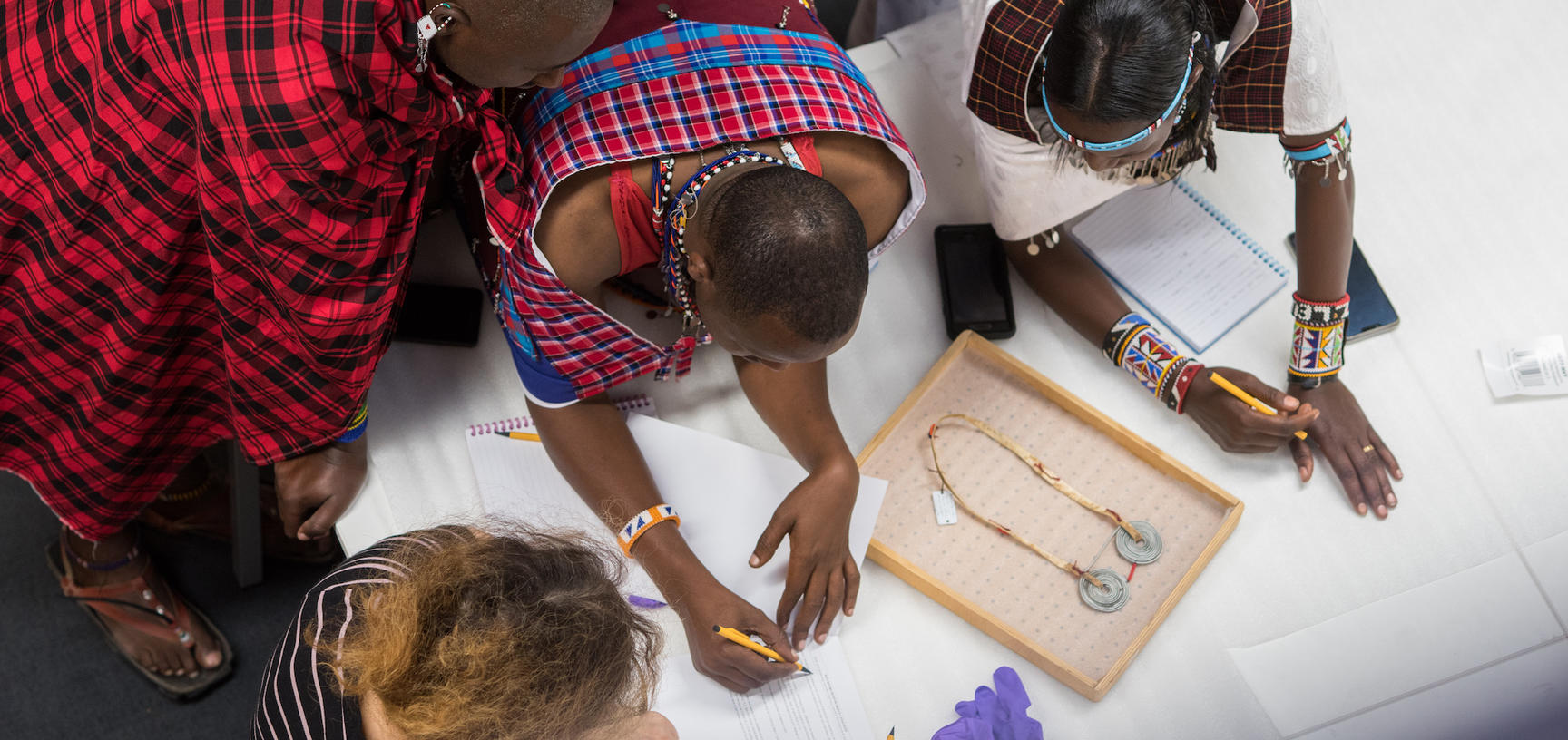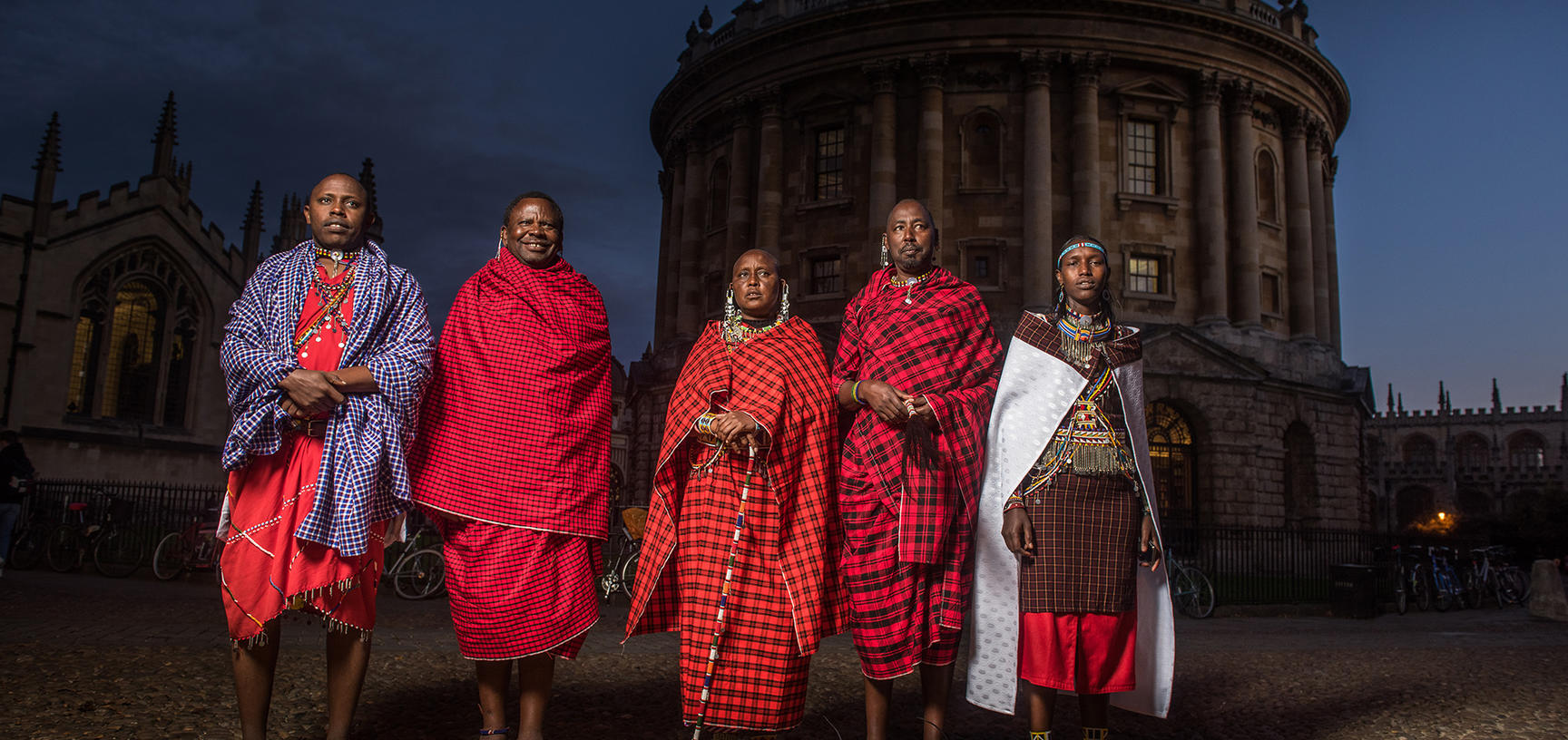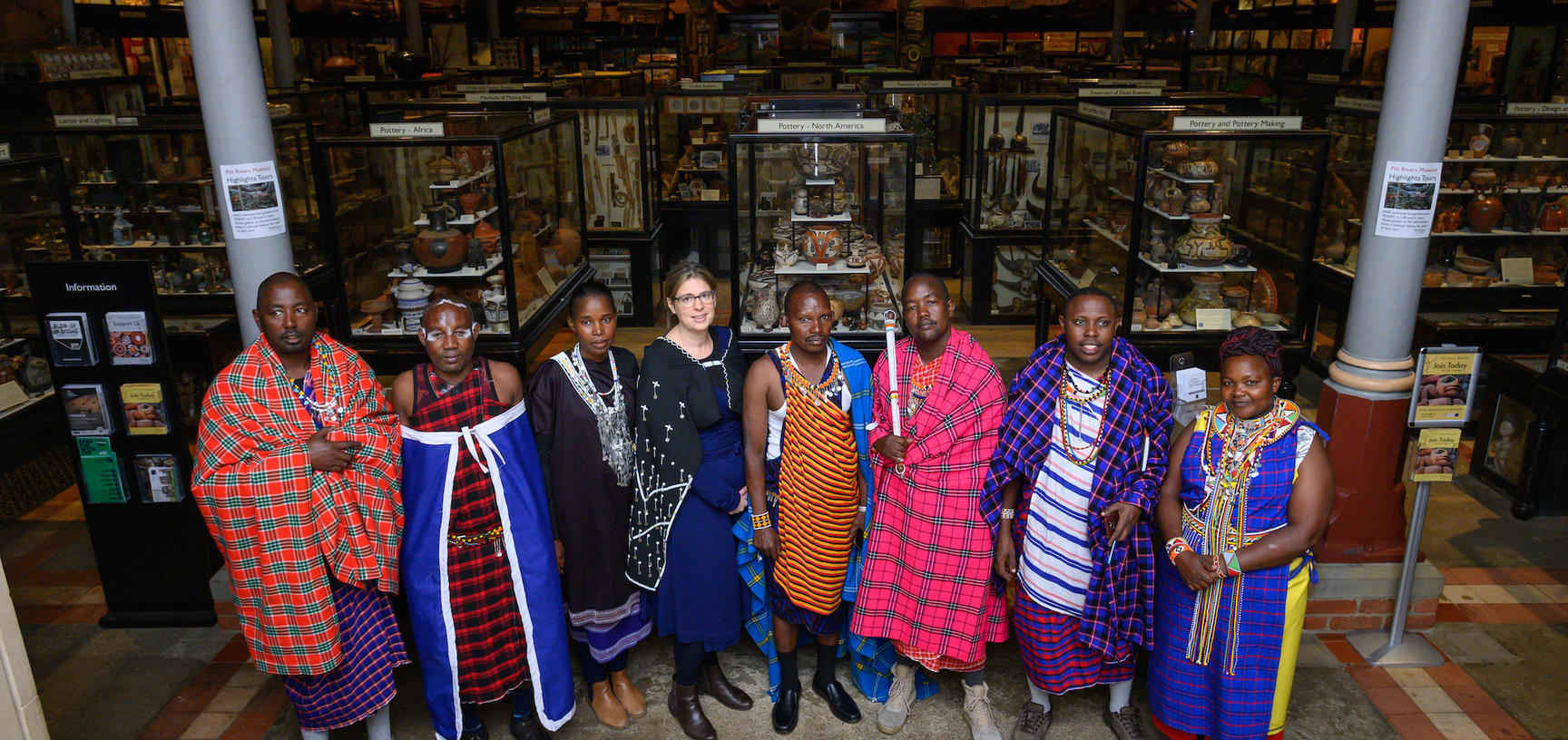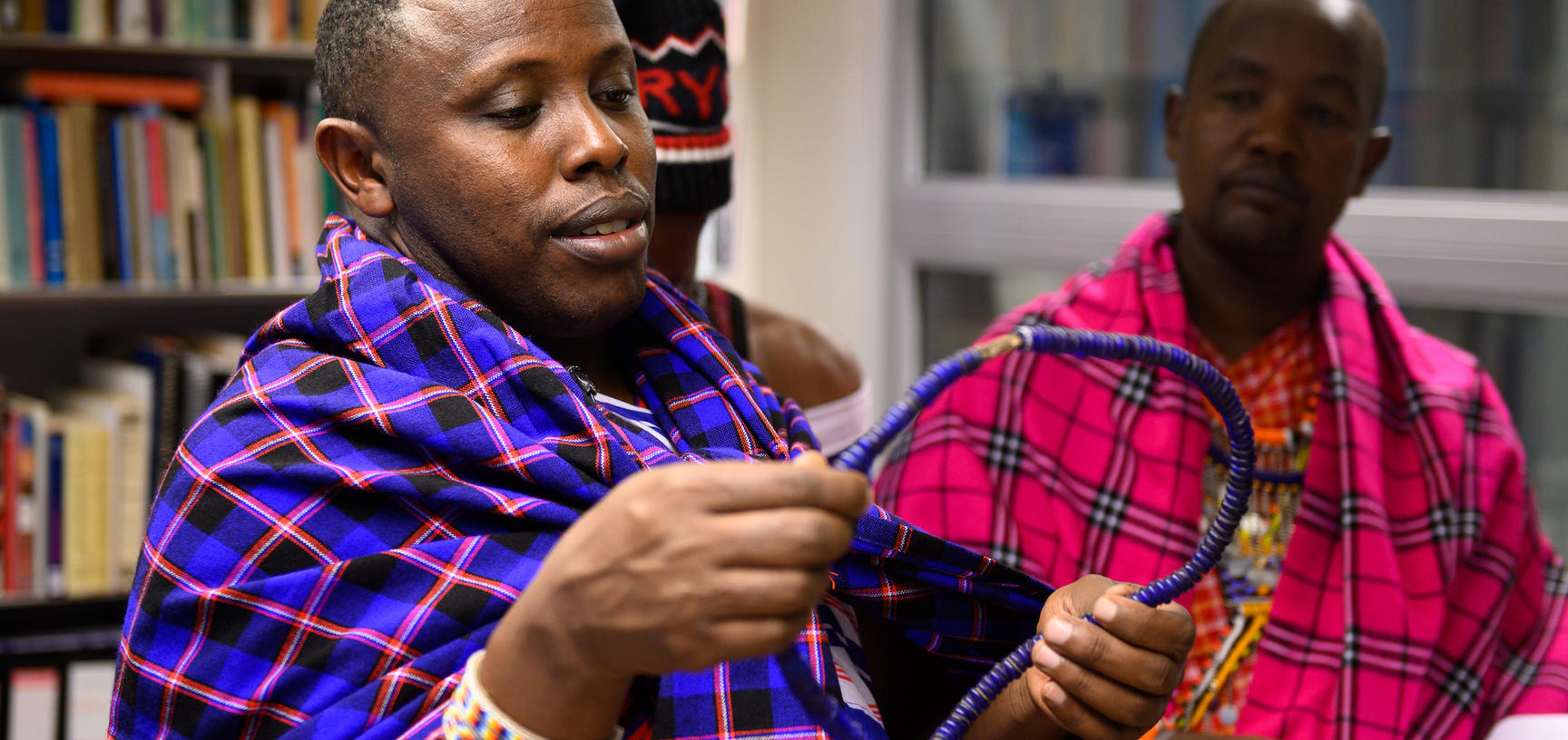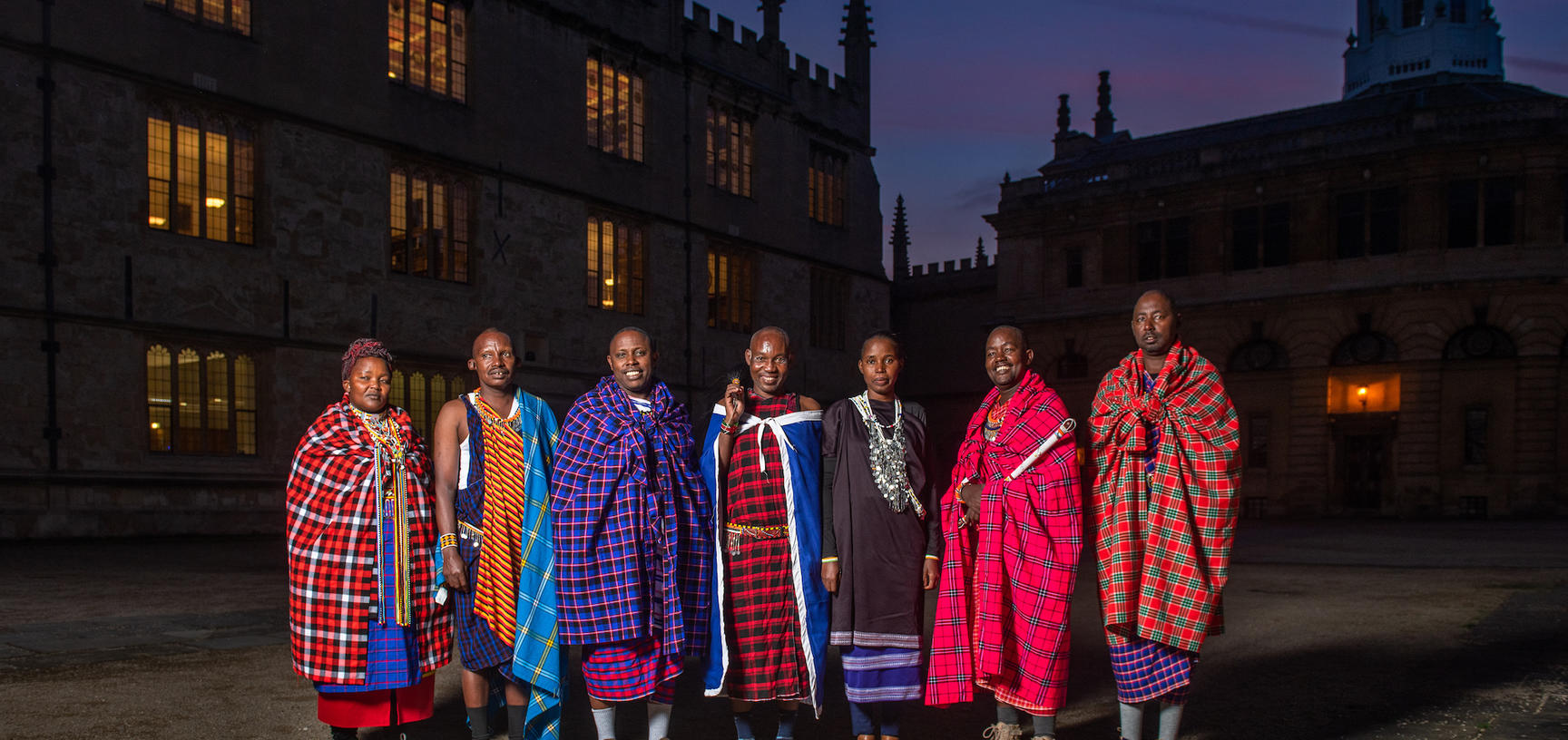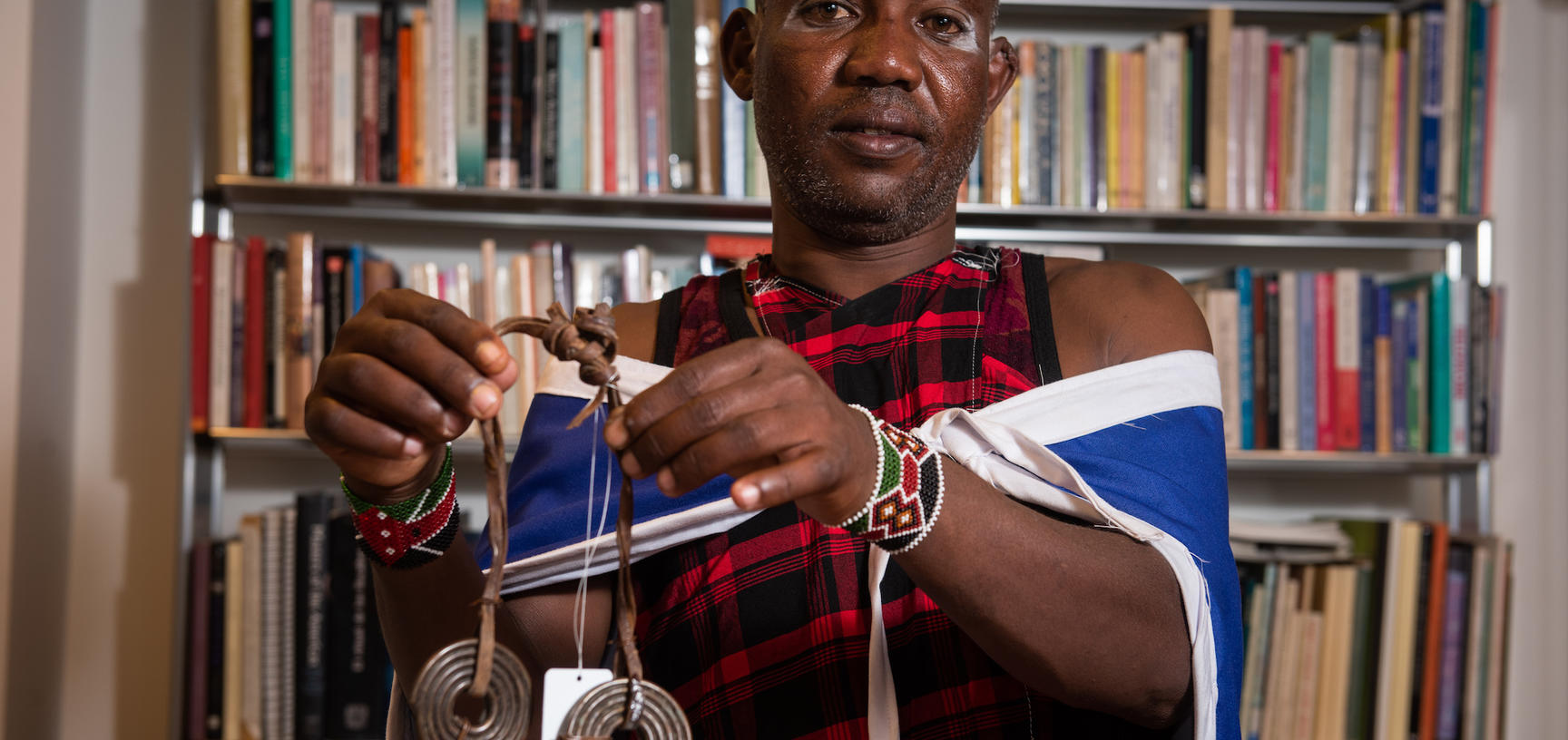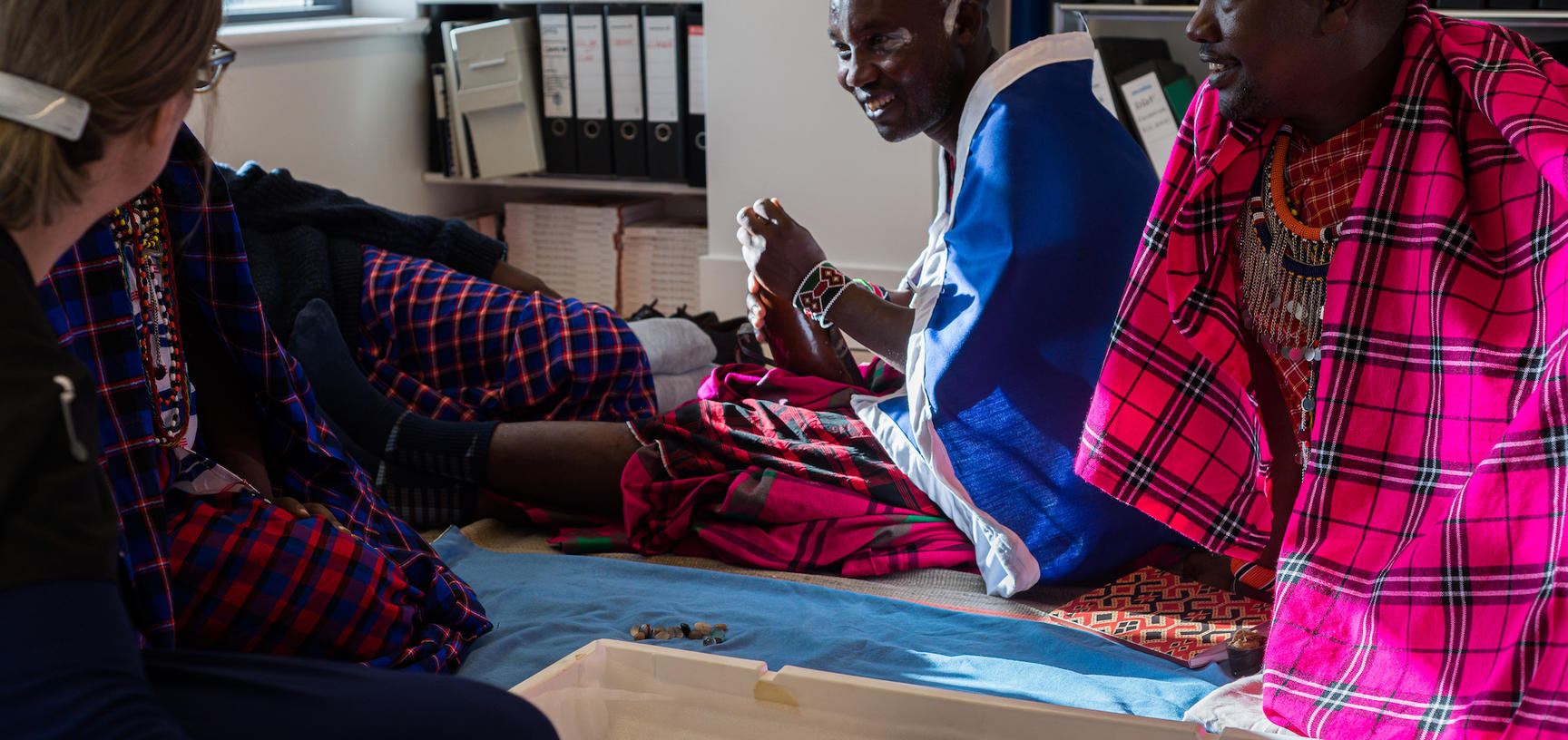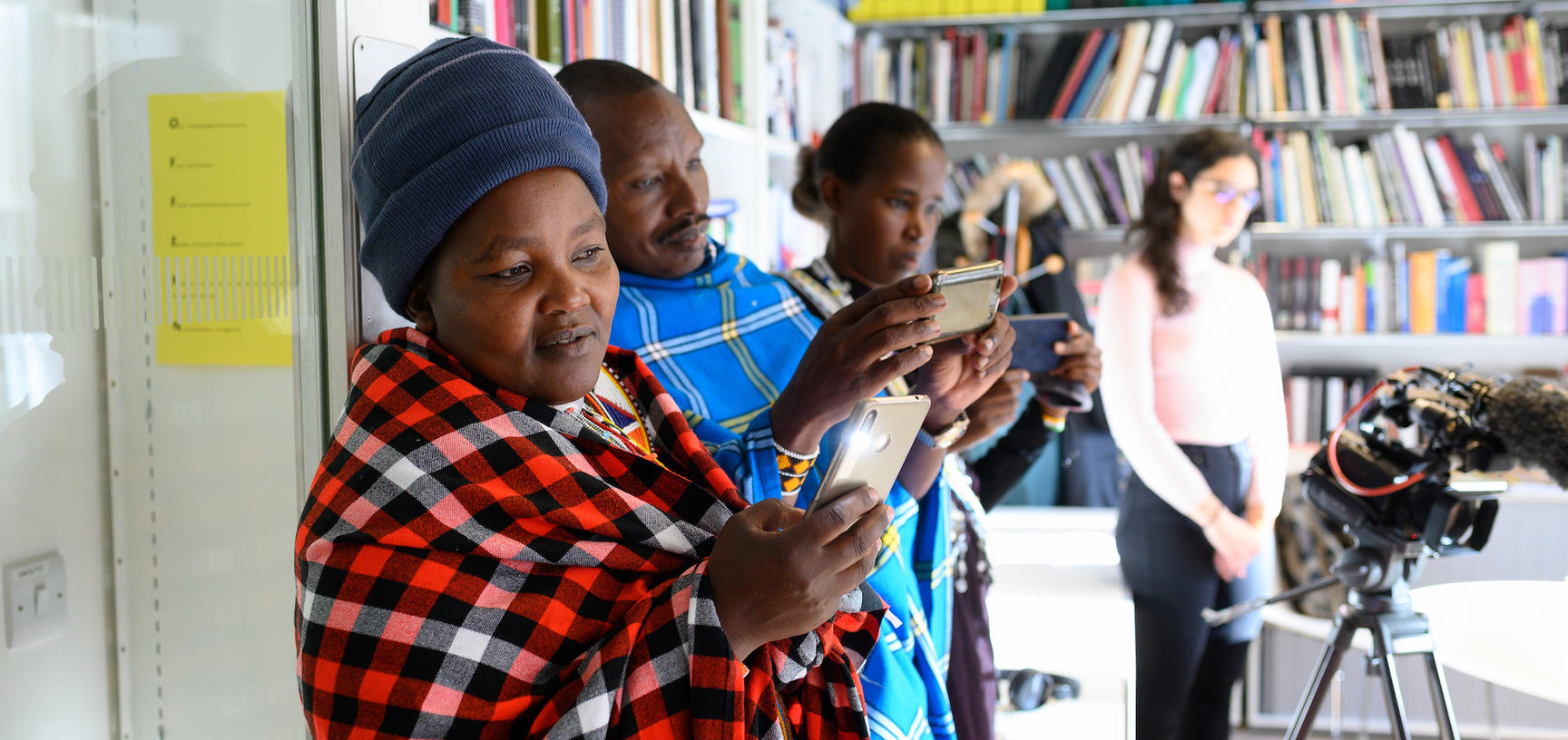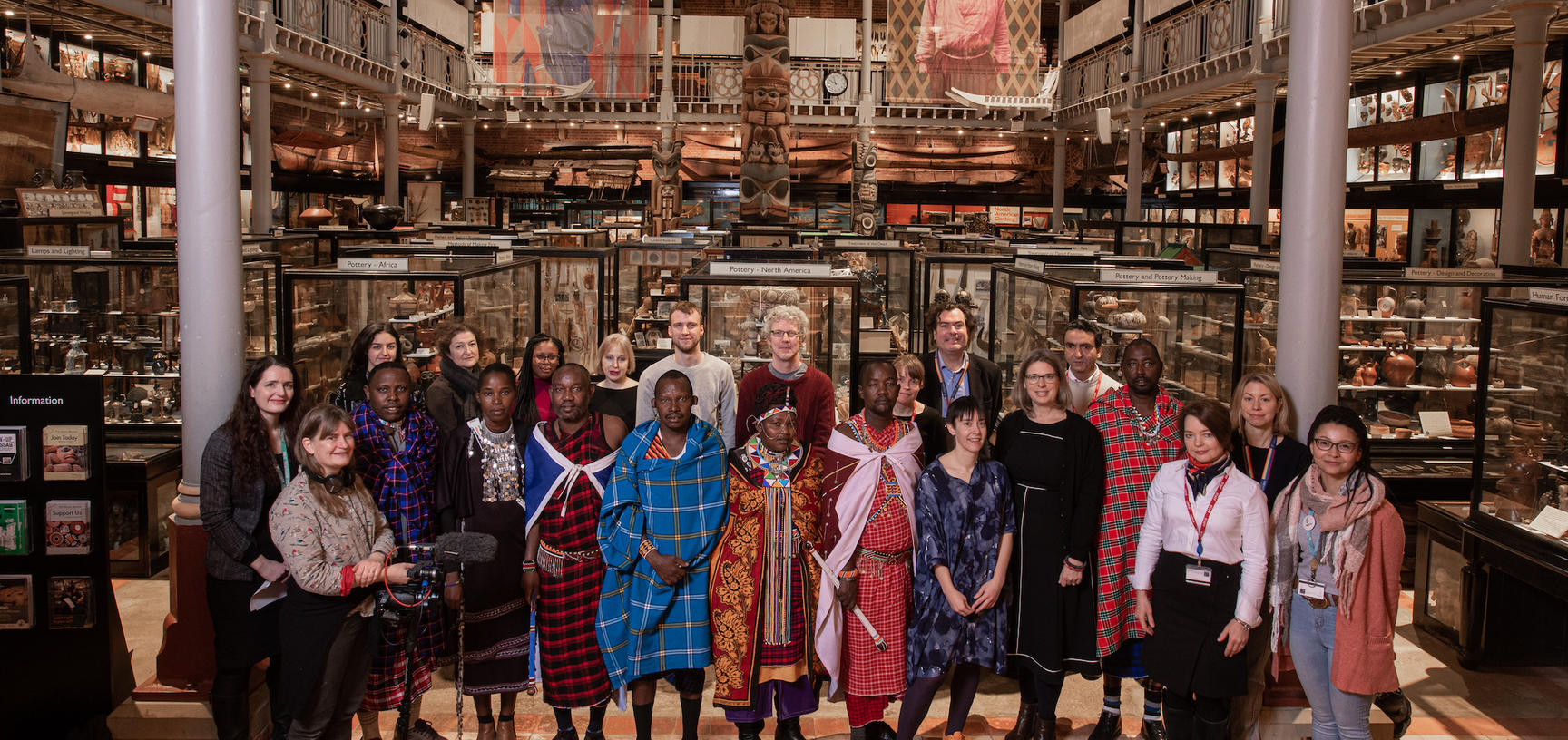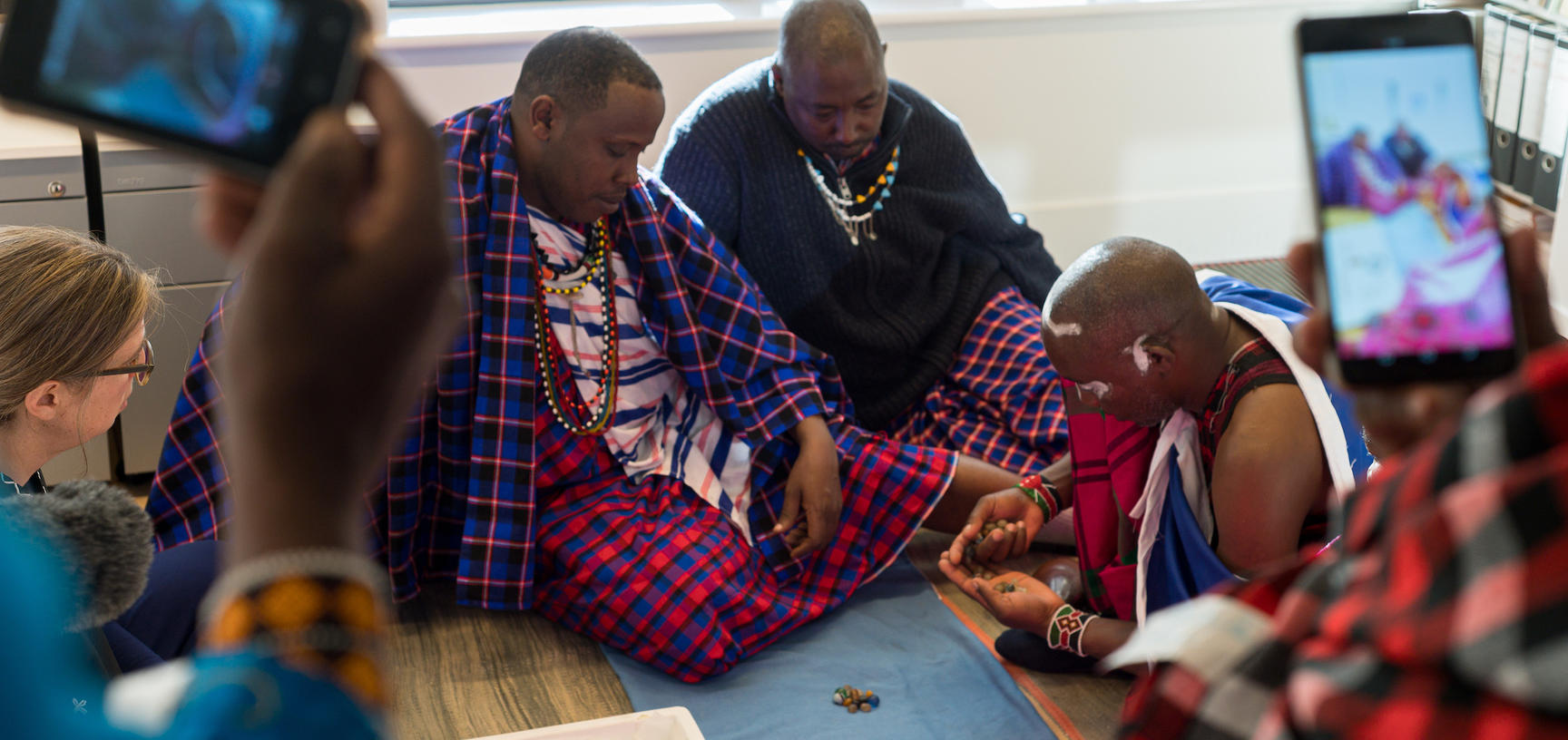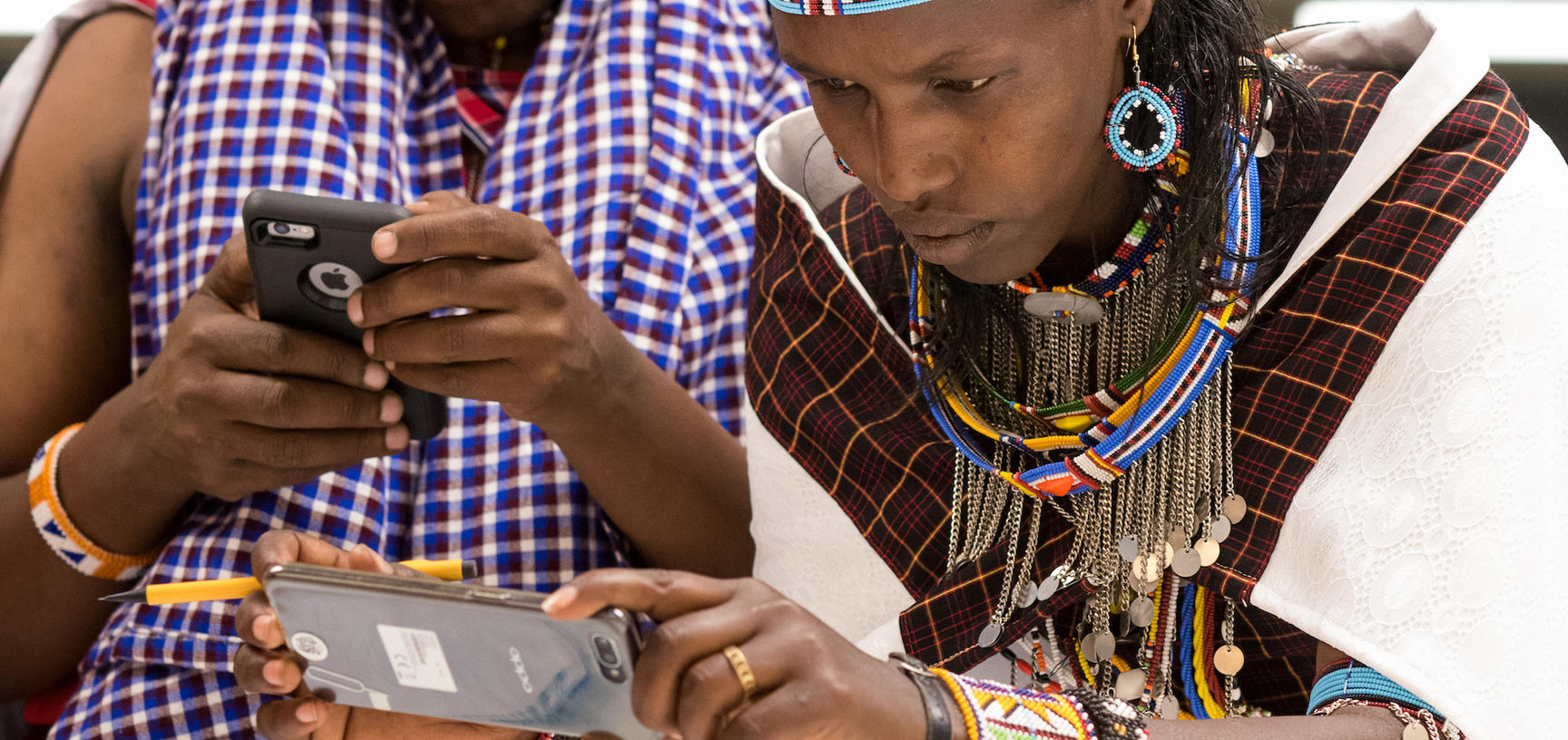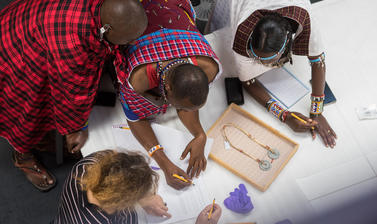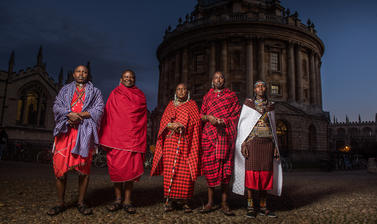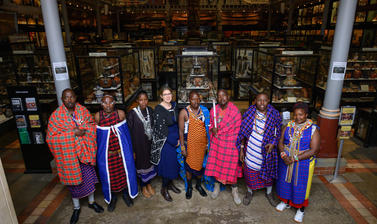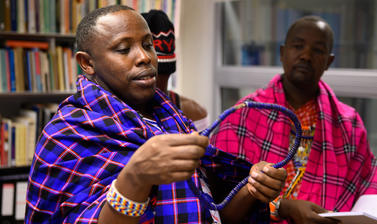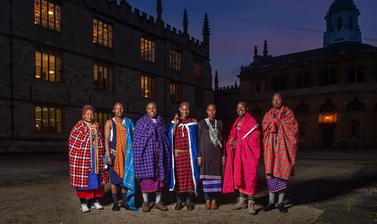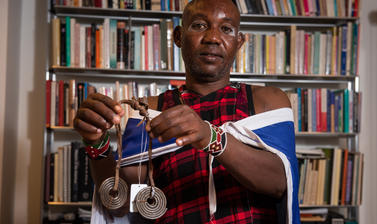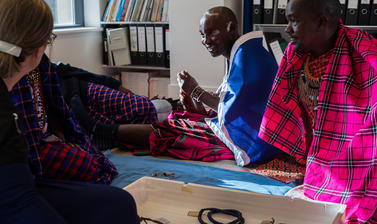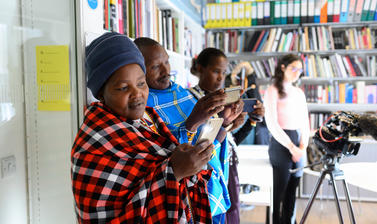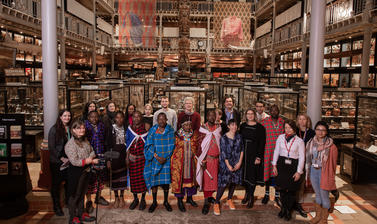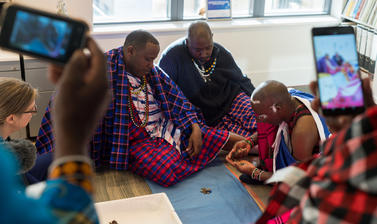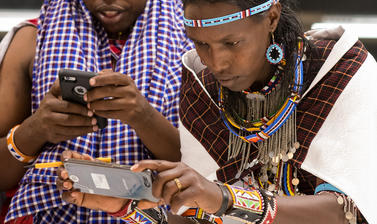Maasai Living Cultures
-
Winner of Museums + Heritage Partnership of the Year Award 2025 (15 May 2025)
"Brave, sensitive, and internationally significant, this partnership sets a new standard for genuine collaboration. Through exceptional dialogue and deep mutual respect, it has delivered outcomes with impact far beyond the project itself — offering vital lessons for the sector at a pivotal moment in museum practice."
-
Winner of the University of Oxford Vice-Chancellor's Award in the 'Making a Difference Globally' category (15 May 2025)
The Maasai Living Cultures Project is a collaborative project between representatives of the Kenyan and Tanzanian Maasai community and the Pitt Rivers Museum, aimed at building trust and addressing concerns about the portrayal of Maasai culture in museums. It aims to foster knowledge exchange and collaboration between the Maasai community and UK museums and to build relationships based on respect, trust and deeper understanding.
The process was started in partnership with InsightShare, a community development organisation working with Indigenous people around the world to address key issues through Participatory Video. The project has also led to the establishment of the Pan-African Living Cultures Alliance (PALCA), a regional network enabling more communities to document their knowledge systems, cultural practices, crafts, languages, and traditional technologies. Other UK museums have joined the project since 2020, including the Museum of Anthropology and Archaeology (MAA) at Cambridge, the Horniman Museum in London and since 2023, the Museum of English Rural Life at Reading University.
How the Project Started 2017
The Maasai Living Cultures Project started in 2017 when human rights activist Samwel Nangiria visited the Pitt Rivers Museum as part of an Indigenous Leadership programme organised by Insightshare. Over the course of the next three years, three further visits were made by Maasai representatives from both Kenya and Tanzania to give guidance on the 188 Maasai objects in the collections at Pitt Rivers Museum and also the collections at Cambridge and the Horniman. During these visits, the delegates expressed their concerns about the presence of 5 objects in the Pitt Rivers collections and indicated that without spiritual intervention their continued presence in Oxford would cause great concern.
In November 2017 and 2018, Maasai delegates visited the Museum to discuss the care of their objects, following their statement that they were concerned and “annoyed, annoyed, annoyed” about the objects’ presence in the Museum, framing Maasai culture as though it was in the past. In fact, Maasai groups in Kenya and Tanzania are actively resisting the erosion of their land and culture.
Consultation with the Maasai Community 2019
In 2019, with support from the Staples Trust, consultations were held within the Maasai community across Tanzania and Kenya through video screenings and discussions with elders, and through the use of radio and media engagement. As a result, around 70% of the Maasai community were informed of the collaboration, helping to strengthen relationships across borders and ensure different views on ways forward were taken into account.
Bringing the Enkidong to Oxford 2020
In January 2020 seven representatives from Kenya and Tanzania, including the Maasai spiritual leader Lemaron Ole Parit, came to Oxford to give further spiritual guidance, whilst further meetings took place in Tanzania and Kenya with chief Laibon Mokompo Ole Parit. During the visit, one of the largest cross-national delegations of Maasai leaders to come to the UK, more museums joined the conversation, expanding the scope of the project, and the fortnight-long visit of the Maasai delegates included visits to the Horniman Museum, London, and the Museum of Archaeology and Anthropology in Cambridge.
The principal aim of the 2020 visit was to receive spiritual guidance from the Maasai Laibon Mokompo, through his son and Laibon in training, Lemaron and the Enkidong (a calabash considered sacred, filled with small white, black and colourful stones and marbles used to communicate with the ancestors) that he brought. For a Laibon to travel with the sacred Enkidong was a unique occasion, as the Enkidong had never left Kenya before.
The delegation worked on addressing the issues around the 5 objects of particular concern. These objects have never been publicly displayed or studied, possibly due to limited historical documentation and lack of research interest in Maasai collections. However, through the work with Maa Laibon Lemaron Ole Parit and Chief Laibon Mokompo Ole Parit, the families from whom the objects were taken were identified and guidance was given with regard to the appropriate ceremonies that need to take place and the appropriate gifts to bring.
Updating Educational Content
As well as improving the documentation in the museum displays and databases, the project partners also identified the need to provide better self-curated education content for the taught sessions for schools visiting the Pitt Rivers Museum. Kenya and Tanzania-based filmmakers from Oltoilo le Maa have made newly commissioned objects and films that are now being being integrated into the museum's education programmes. Some content has also been included in the 2020 interventions in the displays, particularly in regard to the superficial and erroneous attribution of certain objects in the 'Methods of Fire-making' case.
You can view seven short videos produced by community members on this website.
Delegates and Spokespersons
2017: Samwel Nangiria, socio-environmental scientist and long-term human rights defender; founding director of Oltoilo le Maa, a participatory video group that documents human rights issues, social development and Maasai culture visited Oxford and with Oltoilo le Maa produced a film in Loliondo with traditional leaders of Loliondo.
2018: Samwel Nangiria was accompanied by Yannick Ndoinyo, a junior elder from Ololosokwan, Tanzania and Executive Director of The Eastern Serengeti Trust (TEST), a non-profit organization; Kuweya Timan Mollel, a women’s rights champion with long term experiences in mobilizing women to effectively participate in decision-making at the family and other levels, member of Soitsambu village council for 8 years and chairperson of Pastoral Women Council as well as a member of Oltoilo le Maa group; Francis Shomet Ole Naingisa, custodian of the Maasai culture through the Ilkitoip Age Group and lecturer on the Maasai cultural anthropology for international honours programme students from Boston University and Scholastica Ene Kukutia, a Maasai women rights’s activist from Kenya.
2020: Samwel Nangiria; Yannick Ndoinyo, new delegates were Lemaron Ole Parit, the son of Mokompo Ole Simel, great grandchild of Senteu and one of the chief spiritual leaders of the Maasai; Amos Karino Leuka, member of the Loita council of elders, a teacher and long-time activist in cultural leadership and against the practice of Female Genital Mutilation; Juliana Naini Mashati from Morijo, Kenya, founder of Maasai Treasures, an organisation supporting women through the craft of beadwork in Morijo; Evelyn Paraboy Kaney, business transformer from the Ilparakuyo Maasai community in Southern Tanzania, with a Masters of Business Administration from the University of Mary in Fargo, North Dakota, USA; James Meipuki Ole Pumbun, an elder from the Loita Maasai community in Kenya who is an advisor to his age set traditional leader on matters of cultural security. Media coverage of the visit includes Kenyan media, local media and an article in The Economist, examples of which are listed below. The live stream of the public event, where local community members and stakeholders were invited to meet with the Maasai delegation in Oxford was watched by 16,000 people worldwide.
Media, Podcasts and Film
As an innovative collaborative project, Living Cultures has received extensive local, national and international media coverage. We hope it will continue to function as an example of decoloniality and self-representation.
Maasai Community Feedback in Kenya and Tanzania
Decolonising Cultural Spaces: The Living Cultures Project full-length documentary
Podcast with Samwel Nangiria, Laura Van Broekhoven and Nick Lunch
Podcast with Evelyn Paraboy Kaney and Juliana Naini Mashati
Living Cultures Maasai Elders 2017
BBC Samwel Nangiria interview 2018
Maasai Living Cultures Project 2019
Insightshare 'Living Cultures: Decolonising Cultural Spaces' webpage
Media coverage
https://www.facebook.com/ExtinctionRebellion/videos/169328777696511/
https://www.bbc.com/swahili/dira-tv-51511156
https://bt24news.com/africa/maasai-tribespeople-tackle-oxfords-pitt-rivers-museum/
https://www.inventoriesprogramme.org/archives/2020/2/19/oxford-university-restores-maasai-artefacts
https://theboar.org/2020/02/stolen-relics-colonial-era-returned-uk-universities/
BBC.co.uk, 01/11/2024
How Maasai people were reunited with precious Maasai heirlooms
Returning Heritage, 7/10/2024
Maasai delegation decide ancestral objects can remain at Pitt Rivers Museum
Apollo, 06/10/2024
A working group including Maasai representatives from Kenya and Tanzania have decided that items acquired by the Pitt Rivers Museum in Oxford during the colonial era can stay at the museum.
Museums Journal, 03/10/2024
Maasai group decides objects can remain at Pitt Rivers Museum
Oxford Times (print edition), 03/10/2024
Maasai call for return of items from Pitt Rivers
Oxford Mail, 01/10/2024
Maasai visit Oxford Museum to request return of sacred items
BBC.co.uk, 01/10/2024
Museum will keep Maasai objects following visit
Sunday Times (print edition), 29/09/2024
Maasai in Oxford to request sacred item return
BBC Radio Oxford, 30/09/2024
…what to do with some of the more controversial items that are in Oxford's Pitt Rivers Museum has been tackled this weekend…
Unherd.com, 07/03/2024
The death of historical truth
Daily Telegraph, 26/01/2024
The most contested treasures in British museums (and who wants them back)
Sunday Telegraph (print edition), 09/07/2023
Cows are not enough, Maasai tell museum
Daily Telegraph, 08/07/2023
Oxford museum sends cows to Maasai families to compensate for stolen artefacts
Africa Newswire, 08/07/2023
Maasai youth encouraged to research and document culture
Art Newspaper, 06/07/2023
Maasai families receive cows in recognition of ‘culturally sensitive heirlooms’ in Pitt Rivers Museum
Nigeria Sun, 05/07/2023
Oxford University gives cows to Kenyans after colonial theft
K24 TV, 02/07/2023
UK delegation offers cattle to Maasai people as reparations for injustices during colonialism
The Star, Kenya, 30/06/2023
Preserving Maa culture part of our greater mission, says Lenku
Kenya News Agency, 30/06/2023
Families in Loita receive 49 cows each from Pitt Rivers Museum
TLS (print edition), 24/02/2023
Between shamans and scholars
Financial Times (print edition), 04/11/2022
Pressure builds for return of cultural jewellery
Museums Journal, 2/11/2020
A new approach to repatriation
Museums Journal, 3/11/2020
Film captures efforts to ‘redress historical wrongs’ at Pitt Rivers Museum
Cherwell (student newspaper), 22/02/2020
Pitt Rivers to restore Maasai artefacts
The Economist, 13/02/2020
Oxford University restores Maasai artefacts
Oxford Mail, 11/2/2020
Maasai tribal leaders at Pitt Rivers Museum for Living Cultures project
Cherwell (student newspaper), 10/01/2019
Oxford Museums and the Artefacts of Colonialism
The Guardian, 4/12/2018
Hey, that’s our stuff: Maasai tribespeople tackle Oxford’s Pitt Rivers Museum
Museums + Heritage Adviser, 27/11/2018
Living Cultures: Maasai leaders work with Pitt Rivers Museum to tell their story
Oxford Mail, 20/11/2018
Maasai leaders help Oxford University Pitt Rivers Museum better understand their culture


